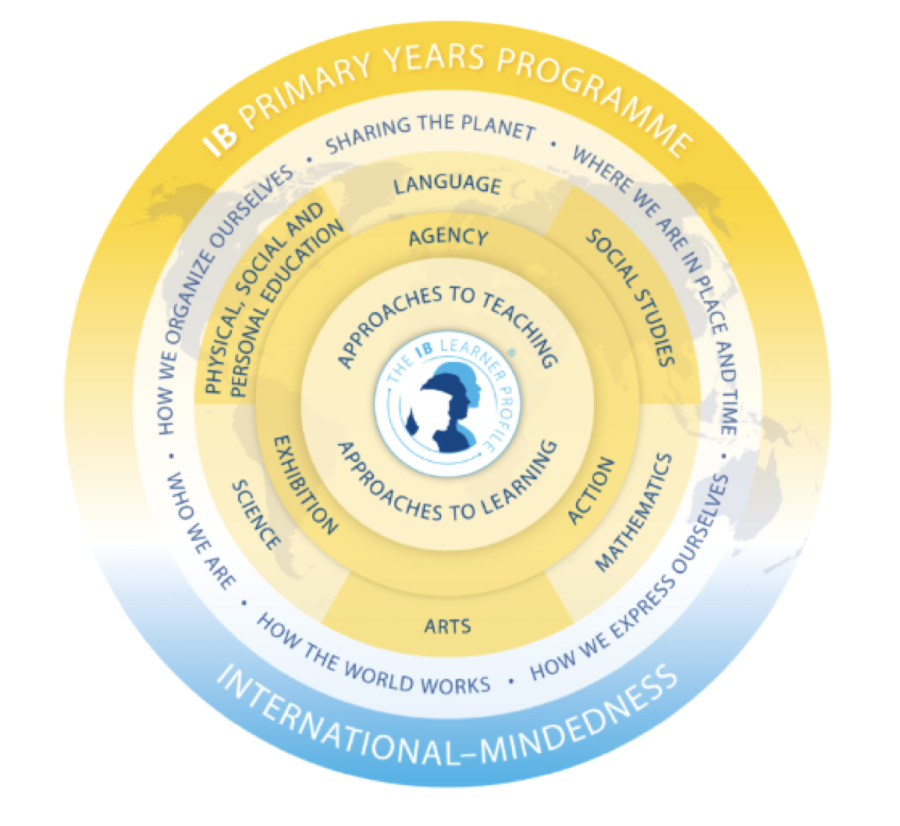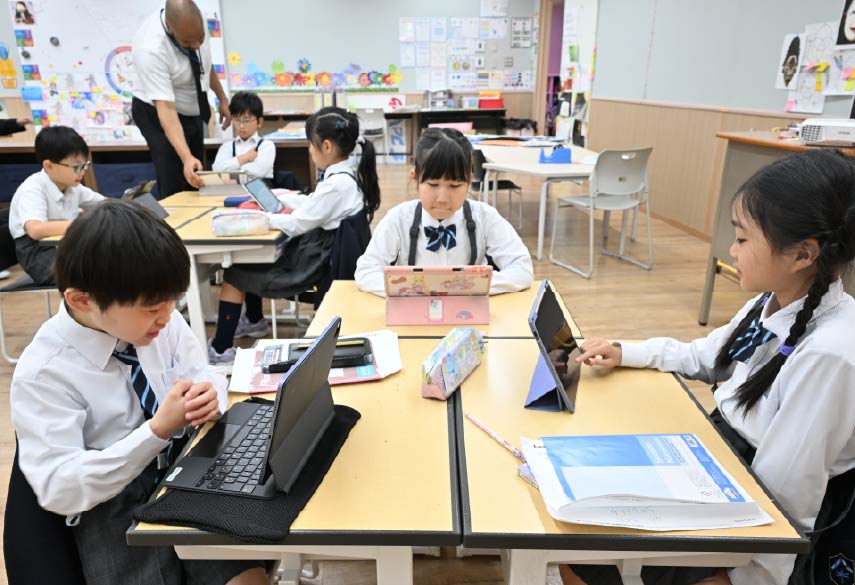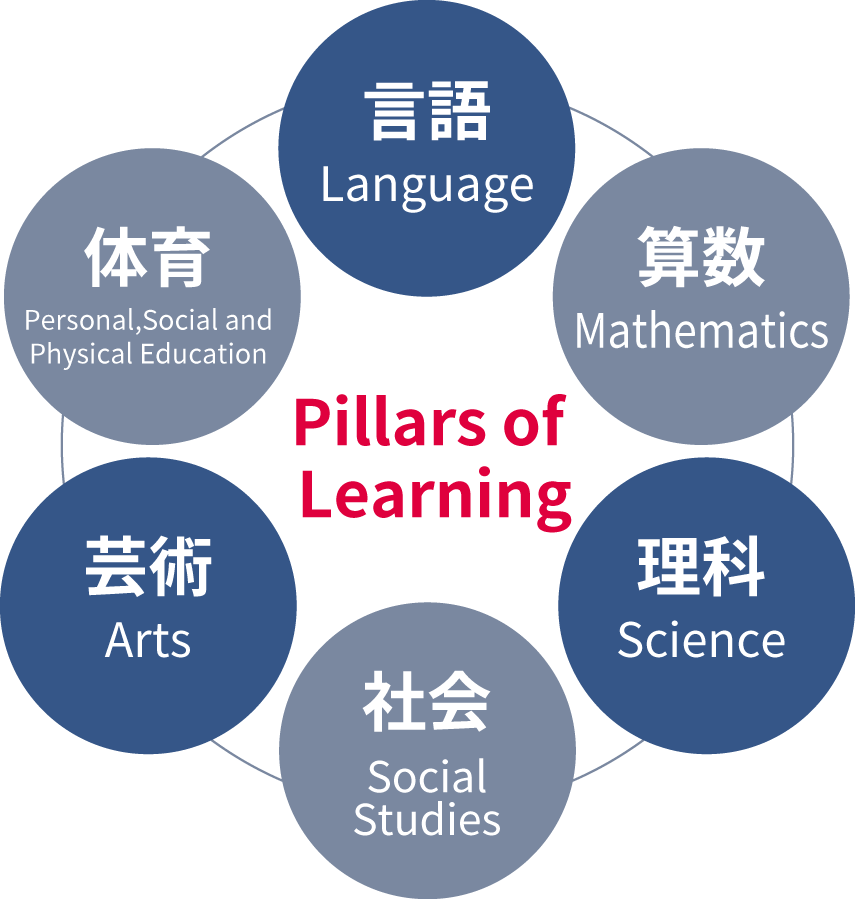Primary Years Programme (PYP)
Educational programme for children from 3 to 12 years old

Our goal is not to cram knowledge, but to foster a spirit of inquiry and develop lifelong learners with an international perspective.
By providing a framework for children to actively participate in their learning and develop their full potential, we hope to foster knowledge, skills, conceptual understanding, and a learner’s attitude that will help them grow into global citizens.

We emphasize inquiry-based learning with children’s curiosity at its core, and teachers support independent learning.
Learning revolves around six global themes that span multiple subjects, encouraging a deep understanding through universal concepts.
Along with knowledge acquisition, the program develops five skills: thinking, research, communication, social skills, and self-management.
Aiming to develop learners who possess the 10 characteristics outlined by the IB’s learner profile, student assessment will be conducted in a manner that balances formative and summative assessment and incorporates a variety of assessment methods.
Six cross-curricular global themes
Who we are
私たちは誰なのか
Where we are in time and space
私たちはどのような時代と場所にいるのか
How we express ourselves
私たちはどのように自分を表現するか
How the world works
世界はどのような仕組みになっているのか
How we organize ourselves
私たちは自分たちをどう組織しているのか
Sharing the planet
この地球を共有するということ
Six Pillars of Learning
The six pillars of learning – Mathematics, Language, Well-being, Arts, Social Studies, and Science—are not merely subjects, but essential frameworks for developing knowledge, concepts, skills, and characteristics of the learner profile through inquiry.

These pillars are explored in an integrated way through transdisciplinary themes to help children grow into lifelong learners through deep learning that transcends the boundaries of individual subjects.
Mathematics
Fostering mathematical thinking, problem-solving skills, and the ability to apply knowledge to real-life situations.
Emphasis on conceptual understanding, skill acquisition, positive attitudes, and relevance.
Language
Build a foundation for communication skills, thinking ability, and intercultural understanding.
Emphasis on receptive, expressive, and interactive language skills and language comprehension.
Personal, Social and Physical Education (Well-being)
Holistically fostering physical, mental, social, and emotional well-being.
Emphasizes self-awareness, self-management, social skills, and empathy.
Arts
Promoting creativity, self-expression, aesthetic sensibility, and cultural understanding.
Emphasis on creative expression, aesthetic appreciation, cultural understanding, and artistic skills.
Social Studies
Exploring and understanding connections with oneself, others, society, and the world.
Emphasis on relationships, place, and time, self-organization, and shared humanity.
Science
Stimulating curiosity and inquiry about nature, and fostering scientific thinking and problem-solving skills.
Emphasis on life, matter, energy, the Earth and the universe, and scientific inquiry.
